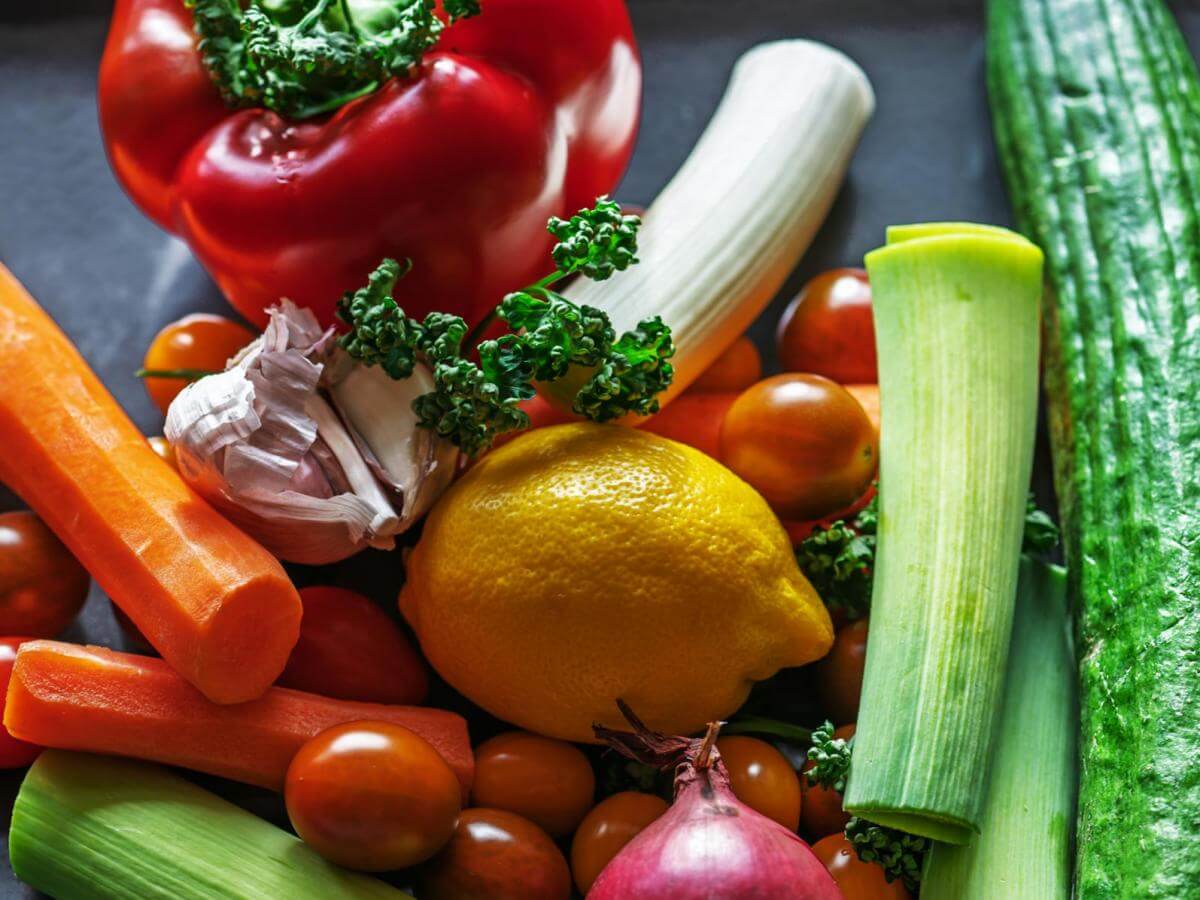How to make your kitchen more sustainable
Have you ever thought that making your kitchen more sustainable can have a real impact when it comes to our planet and your health?
You don't need to forget all your old kitchen habits or make huge changes. Sometimes, even the smallest action can reduce your carbon footprint and help make a difference!
Mindful eating
What you cook and eat can really affect your health and our planet. So before buying certain products make sure you read the food labels correctly. Take time to understand where the products that you consume come from and if they are locally grown.
For example, enriching your lunch or dinner by using multiple sources of protein such as beans or lentils instead of eating only meat, eating seasonal foods and adding variety to your diet can help you be more healthy but also contribute to a healthier eco-system and more sustainable agricultural practices.
Did you know that 75% of the world's food supply derives from just 12 plants and 5 animal species (source: WWF)?
You don't need to forget all your old kitchen habits or make huge changes. Sometimes, even the smallest action can reduce your carbon footprint and help make a difference!
Mindful eating
What you cook and eat can really affect your health and our planet. So before buying certain products make sure you read the food labels correctly. Take time to understand where the products that you consume come from and if they are locally grown.
For example, enriching your lunch or dinner by using multiple sources of protein such as beans or lentils instead of eating only meat, eating seasonal foods and adding variety to your diet can help you be more healthy but also contribute to a healthier eco-system and more sustainable agricultural practices.
Did you know that 75% of the world's food supply derives from just 12 plants and 5 animal species (source: WWF)?

Smart shopping
There are many ways to reduce your waste, starting with limiting your food waste. In fact, almost one third of all food produced globally every year is wasted or lost before it can be consumed (source: World Food Programme). So, making your kitchen more sustainable starts with smart shopping!
Apart from storing food properly in your kitchen, make sure you plan your weekly meals carefully. Avoid going food shopping when you feel hungry, make a list beforehand and, if feasible, break up your food shopping into several trips throughout the week. In this way you will avoid buying excessive quantities of food that you might not need.
Don't judge fruits or vegetables only by their appearance. Some supermarkets tend to stock fruits or vegetables that look 'perfect' and identical when it comes to size, shape or color. But remember that in some cases certain foods can still be nutritious and tasty even if they don't look 'perfect'.
There are many ways to reduce your waste, starting with limiting your food waste. In fact, almost one third of all food produced globally every year is wasted or lost before it can be consumed (source: World Food Programme). So, making your kitchen more sustainable starts with smart shopping!
Apart from storing food properly in your kitchen, make sure you plan your weekly meals carefully. Avoid going food shopping when you feel hungry, make a list beforehand and, if feasible, break up your food shopping into several trips throughout the week. In this way you will avoid buying excessive quantities of food that you might not need.
Don't judge fruits or vegetables only by their appearance. Some supermarkets tend to stock fruits or vegetables that look 'perfect' and identical when it comes to size, shape or color. But remember that in some cases certain foods can still be nutritious and tasty even if they don't look 'perfect'.

Be a more sustainable cook
There are many ways to be a more sustainable cook at home!
First of all, keep an eye on the levels of energy that you consume while cooking. While preparing your meal, keep the lid on or try avoiding opening the oven to save energy. When boiling water estimate the right quantity so that you don't end up wasting water or extra energy to warm it up.
Secondly, there are easy ways to save water. For example, steam whenever possible instead of boiling. After boiling vegetables, use the remaining water for another dish or let it cool down and water your garden. In general, use water efficiently by closing the tap while washing your hands or cleaning the dishes go for the full load when it comes to the dishwasher.
Then, what about bringing a bit of creativity into your menu? By repurposing your leftovers into new dishes not only you reduce your environmental impact but you can also discover new creative recipes. For instance, reuse leftover bread in order to make 'Canederli', a typical South Tyrolian recipe or make a delicious pesto using leftover fresh herbs before they go wrong.
Last but not least, think twice before removing the skin or peel of fruits and vegetables. Interestingly, peels sometimes contain more vitamins and fiber than what's inside. If you still need to remove the skin or peel, recycle and compost it. A compost bin in your kitchen is a great way to reduce the amount of food waste ending up in the landfill and keep your garden healthy.
Prefer reusable or more natural products
Prefer reusable kitchen accessories such as glass containers or reusable kitchen towels instead of kitchen paper, cling wrap or plastic containers.
When it comes to cleaning, choose natural or eco-friendly cleaning products when possible.
There are many ways to be a more sustainable cook at home!
First of all, keep an eye on the levels of energy that you consume while cooking. While preparing your meal, keep the lid on or try avoiding opening the oven to save energy. When boiling water estimate the right quantity so that you don't end up wasting water or extra energy to warm it up.
Secondly, there are easy ways to save water. For example, steam whenever possible instead of boiling. After boiling vegetables, use the remaining water for another dish or let it cool down and water your garden. In general, use water efficiently by closing the tap while washing your hands or cleaning the dishes go for the full load when it comes to the dishwasher.
Then, what about bringing a bit of creativity into your menu? By repurposing your leftovers into new dishes not only you reduce your environmental impact but you can also discover new creative recipes. For instance, reuse leftover bread in order to make 'Canederli', a typical South Tyrolian recipe or make a delicious pesto using leftover fresh herbs before they go wrong.
Last but not least, think twice before removing the skin or peel of fruits and vegetables. Interestingly, peels sometimes contain more vitamins and fiber than what's inside. If you still need to remove the skin or peel, recycle and compost it. A compost bin in your kitchen is a great way to reduce the amount of food waste ending up in the landfill and keep your garden healthy.
Prefer reusable or more natural products
Prefer reusable kitchen accessories such as glass containers or reusable kitchen towels instead of kitchen paper, cling wrap or plastic containers.
When it comes to cleaning, choose natural or eco-friendly cleaning products when possible.
ARTICLES YOU MAY LIKE







